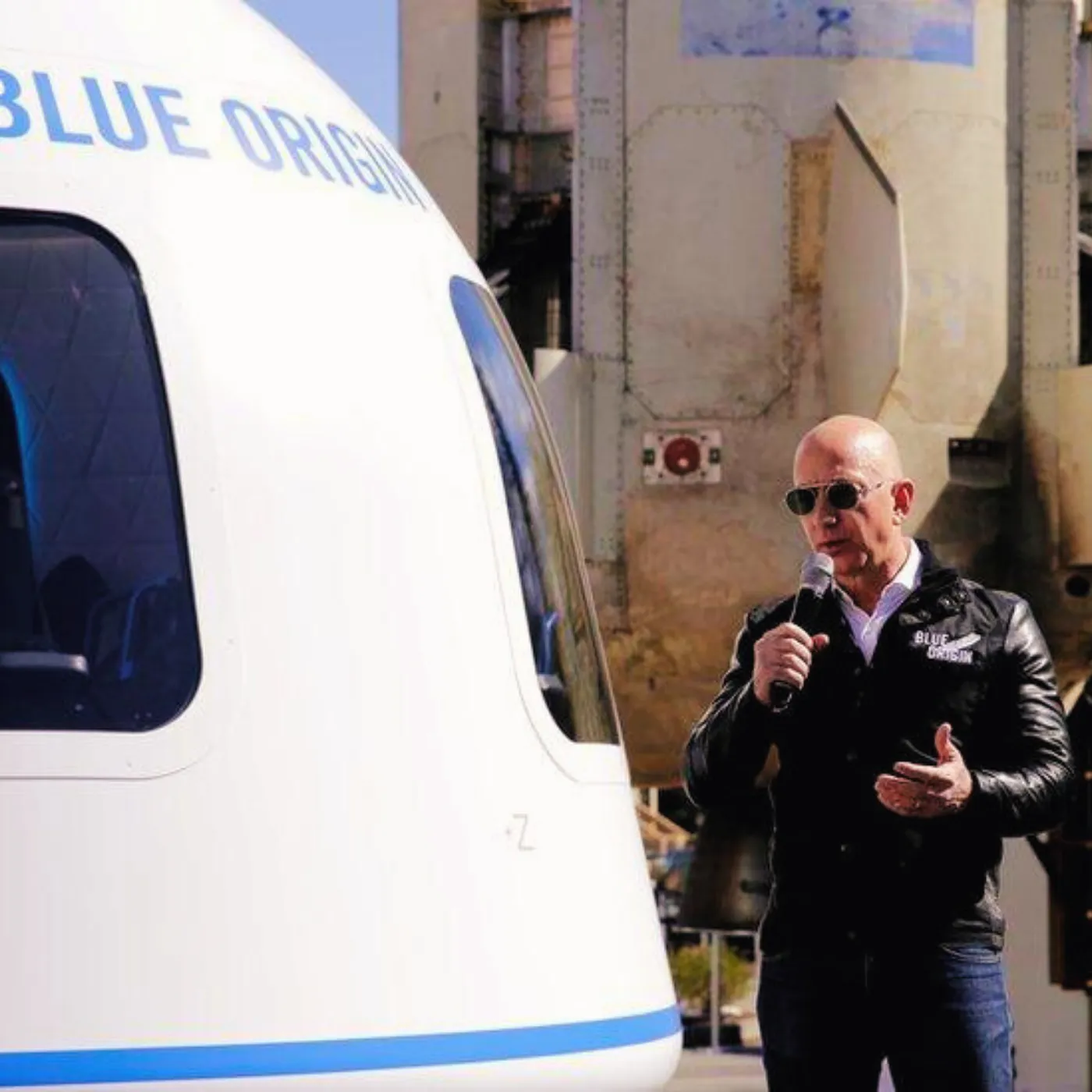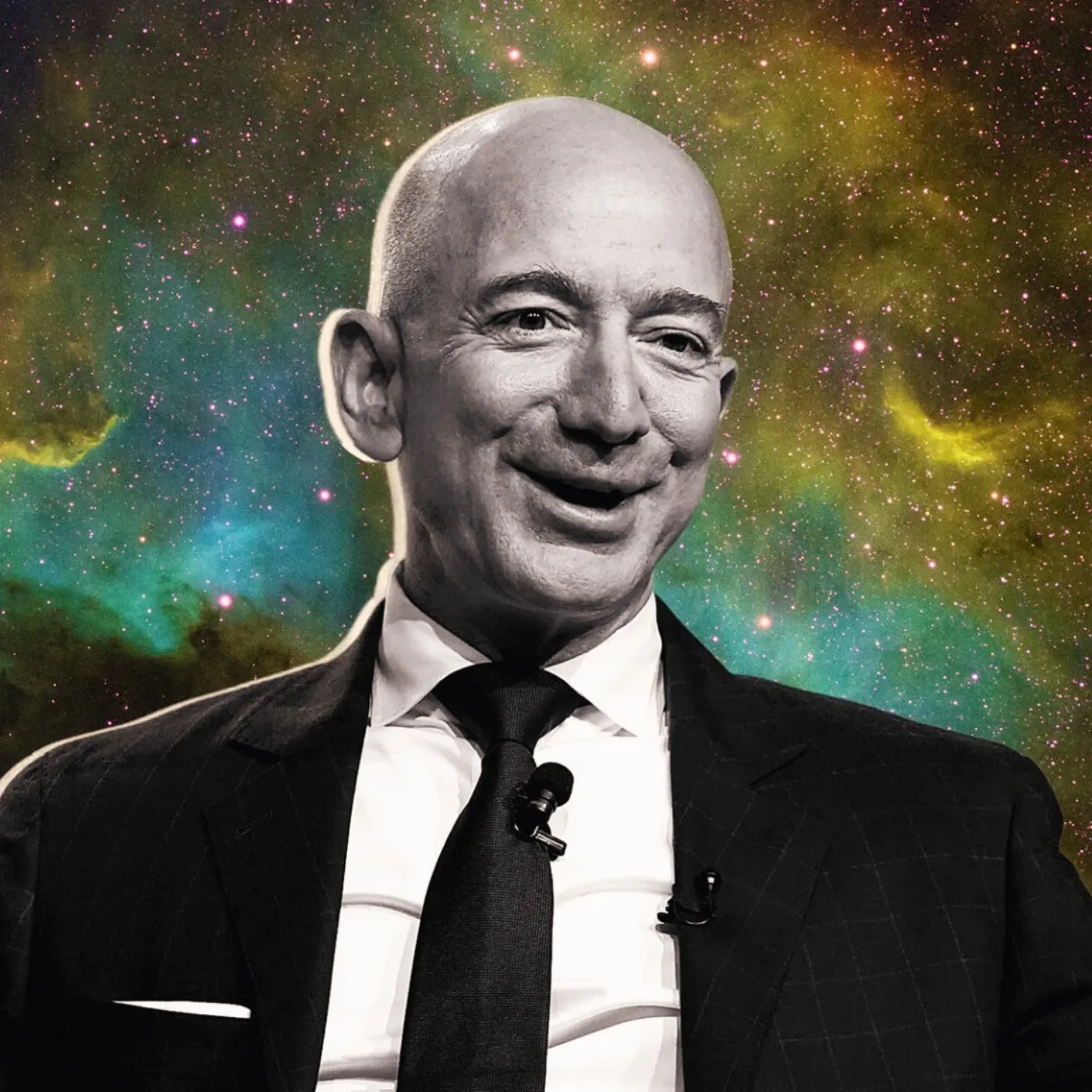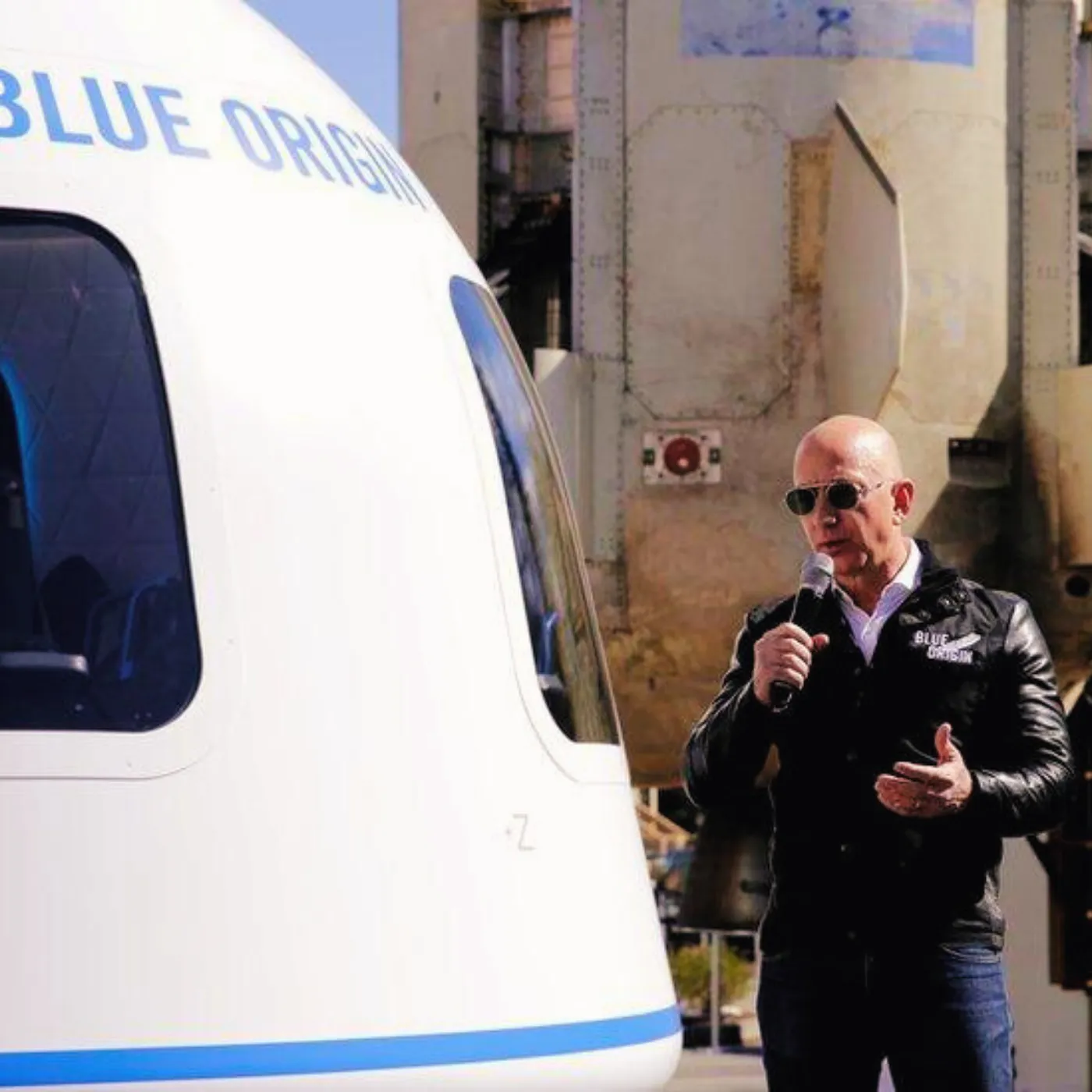

From Digital Dominance to Galactic Vision: Jeff Bezos’ Grand Blueprint for the Future
In the grand scheme of modern entrepreneurship, few names have become as synonymous with global disruption and innovation as Jeff Bezos. From founding Amazon in 1994 to spearheading Blue Origin, his private space exploration company, Bezos has transformed not only the retail landscape but also set his sights on reshaping humanity’s future in the cosmos. But the question that lingers, especially amidst the challenges and criticisms of his ventures, is whether Jeff Bezos has truly changed the world. Has his relentless pursuit of success altered the course of history, or is he just another billionaire playing with the world’s resources?

This article dives deep into the trajectory of Jeff Bezos’ career, exploring the far-reaching consequences of his business decisions, his impact on the economy, and his vision for the future.
The Genesis of Amazon: More Than Just an Online Bookstore
It all started in 1994, when Bezos launched Amazon from his garage in Seattle. What began as an online bookstore soon morphed into something far greater. Bezos’ vision was always bigger than books. He saw the internet as an untapped potential to revolutionize how people shop, interact, and do business. He knew that in a digital age, customer convenience and access to a vast inventory would create a monumental shift in the global marketplace.
The game-changing model of Amazon was based on offering an unprecedented selection of goods, a user-friendly interface, and fast delivery—all while maintaining competitive prices. At the time, it was radical. No one thought people would buy everything online, let alone trust a company with their credit card information. But Bezos bet on the long game. His idea was simple: sell anything, to anyone, anywhere. And he didn’t just want to be a retailer; he wanted to dominate the e-commerce world.
Today, Amazon is worth nearly $1.97 trillion and is a global powerhouse. The company’s impact on retail, logistics, and consumer behavior has been profound. What Bezos created wasn’t just an online store; it was an ecosystem that fundamentally changed how the world operates.
Disrupting Retail: The Amazon Effect
Amazon’s rise wasn’t without its controversies. Critics argue that its monopolistic tendencies have crushed traditional brick-and-mortar stores, leaving entire industries scrambling to catch up. The so-called “Amazon Effect” has been blamed for the decline of major retail chains like Sears, Toys “R” Us, and countless small businesses that couldn’t compete with Amazon’s vast selection and speed.
While Bezos may have been instrumental in killing traditional retail, he also revolutionized how the global supply chain functions. By introducing innovations like Amazon Prime, two-day shipping, and drone deliveries, he redefined what consumers expect in terms of service. But this success didn’t come without its darker side.
Amazon’s labor practices have faced fierce scrutiny, with reports of grueling working conditions in fulfillment centers, harsh productivity quotas, and criticism over the company’s treatment of its employees. The company’s reliance on automation and AI has caused major disruptions in the job market. Some argue that Bezos’ empire has come at the expense of workers’ rights and that his focus on efficiency and profit margins has prioritized speed over human dignity.
But Bezos has always remained unapologetic. For him, innovation and market dominance are the primary goals. Whether that’s to the detriment of workers is a matter of perspective.
Shifting Gears: Bezos’ Vision Beyond Earth
After amassing significant wealth and influence through Amazon, Bezos turned his attention to a new frontier: space. In 2000, he founded Blue Origin, a company focused on space travel and exploration. Unlike SpaceX, which is led by Elon Musk with a focus on colonizing Mars, Blue Origin’s mission has been more about creating the infrastructure for sustainable space travel and opening up space for tourism. Bezos envisions a future where humans will live and work in space.
Blue Origin’s New Shepard rocket has successfully launched several test flights and even carried paying passengers in 2021. The company has also been involved in significant research and development aimed at advancing rocket technology, with the ultimate goal of making space travel more accessible.

The concept of space tourism—once considered a pipe dream—now seems more tangible thanks to Bezos. While critics dismiss it as a frivolous billionaire hobby, many argue that space exploration holds the potential for groundbreaking advancements in technology that could benefit humanity. From developing new energy sources to finding solutions for climate change, the potential of space travel goes far beyond tourism.
Yet, Bezos’ venture into space hasn’t been free from criticism. The environmental costs of rocket launches, the ethical questions surrounding wealth inequality, and the question of whether billions of dollars could be better spent solving problems on Earth rather than exploring the stars are all valid concerns. Many see his space endeavors as another example of the superficial aspirations of the ultra-wealthy, while others wonder if Bezos is simply trying to buy his way into history.
Jeff Bezos: A Master of Innovation and Controversy
Bezos’ legacy is undoubtedly a mixed bag. On the one hand, his visionary ideas have reshaped entire industries. Amazon has made shopping easier, faster, and more accessible than ever before. It has provided countless jobs and created immense wealth for shareholders, employees, and entrepreneurs who have benefited from Amazon’s ecosystem. But at the same time, his relentless focus on growth and efficiency has come with substantial ethical compromises.
The cost of progress is often overlooked, but the truth is that Bezos’ empire has not come without casualties. From the loss of jobs in traditional retail to the environmental impact of Amazon’s vast logistics network, Bezos’ drive for dominance has raised important questions about the true price of success. Is it worth sacrificing worker rights, environmental sustainability, and human dignity for the sake of market dominance and profit?
Changing the World: Is Bezos’ Impact Positive or Negative?
Has Jeff Bezos truly changed the world? The answer isn’t as straightforward as we might hope. On one hand, he has undeniably reshaped the retail and tech industries, influencing everything from supply chains to how we shop online. On the other hand, his empire has come with significant social, economic, and environmental costs.
Bezos’ vision for the future, whether in space exploration or advanced technologies, has the potential to change the course of human history. But the question remains: is he changing the world for the better or simply furthering his personal empire at the cost of others? His success story is filled with ambition, vision, and innovation, but it also carries the baggage of ethical dilemmas that cannot be ignored.
The fact remains that Bezos’ legacy will likely be shaped by how his actions have impacted both the global economy and the social fabric. Will his innovations in e-commerce and space exploration truly improve the quality of life for future generations? Or will they be remembered as another example of a billionaire with too much power, using his wealth to shape the world in his image?

The Final Verdict: Does Bezos Truly Change the World?
Jeff Bezos has certainly changed the way the world works. From Amazon’s global dominance in retail to Blue Origin’s vision of space tourism, his reach is undeniable. However, his journey has not been without controversy. Whether his impact is truly positive or negative is still up for debate, and it’s up to future generations to decide whether his legacy will be seen as one of progress or pragmatism at the expense of ethics.
Ultimately, Jeff Bezos has undoubtedly altered the world, but the question of whether those changes will have a net positive effect on humanity remains to be seen.


















